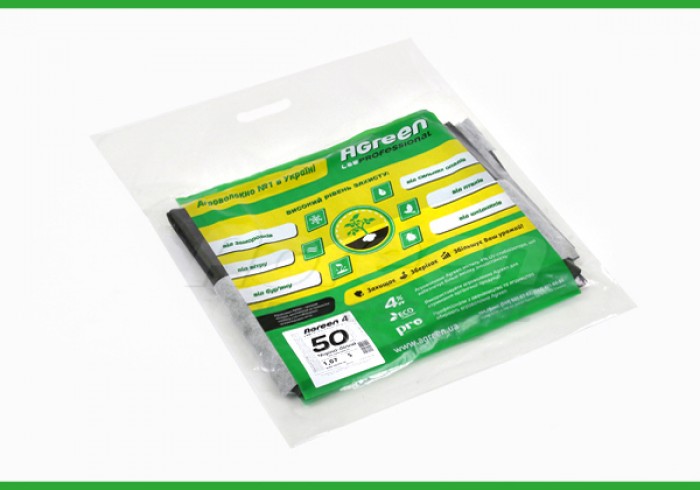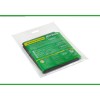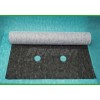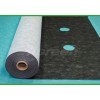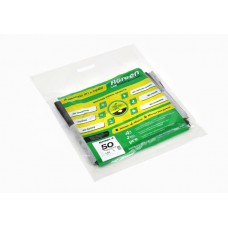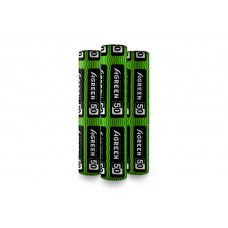Agreen
black and white agrofibre with perforation
Two-color
black and white agrofibre with perforation (2 rows with holes) – it is a new and most optimal type
of mulching, which combines the best qualities of black and white agrofibre.
First of
all, it is convenient for farmers in hot regions, since this agrofibre prevents
overheating of the root system in the heat of the year.
The density
of this agrofibre is 50 g/sq.m. m and use it only for mulching
(vegetable, berry crops).
Agrofibre is laid with the black side on the soil, and the white side up: the black side
protects against weed germination, so there is no need to use herbicide, and
the white side, reflecting excessive sunlight on hot days, protects the root
system from overheating. Agrofibre is well permeable to moisture and air,
unlike film. As with ordinary agrofibre, the soil does not compact, does not
mold and its structure does not change.
It should
be remembered that the black-and-white agrofiber must be spread on pre-warmed,
dry and weed-free soil. If this recommendation is not followed, it can lead to
a delay in the harvest, not to its accelerated receipt. This result is possible
because the agrofibre will warm up longer, since the white layer will reflect
sunlight.
Advantages of black and white agrofibre:
- protects against weeds;
- passes water and air well;
- keeps fruits and berries clean;
- rot and mold do not form under the material.
Application
method: mulch is
spread on the prepared bed and one of the edges is fixed. Therefore, they
alternately straighten, tighten and fasten the remaining edges. The edges of
the canvas are sprinkled with earth or fixed with pegs. Mulching can be done
only on loose and moist soil.
Mulching – a good way to enrich poor soil.
The material is not removed until the culture is eliminated. On beds with
perennial berry crops (strawberries, wild strawberries, etc.), the material
remains all year round.
The
distance between the holes:
- horizontally: 25 см;
- vertically: 33 см.
Covering strawberries with Agreen agrofibre, recommendations for use
Related Products
Black and white agrofibre without perforation
Black and white agrofibre without perforation Agrofibre of two colors (black and white) –..
Black and white agrofibre
Black and white agrofibre without perforation Agrofibre of two colors (black and white) –..
Black and white agrofibre with perforation
Agreen black and white agrofibre with perforationTwo-color black and white agrofibre with perfora..



